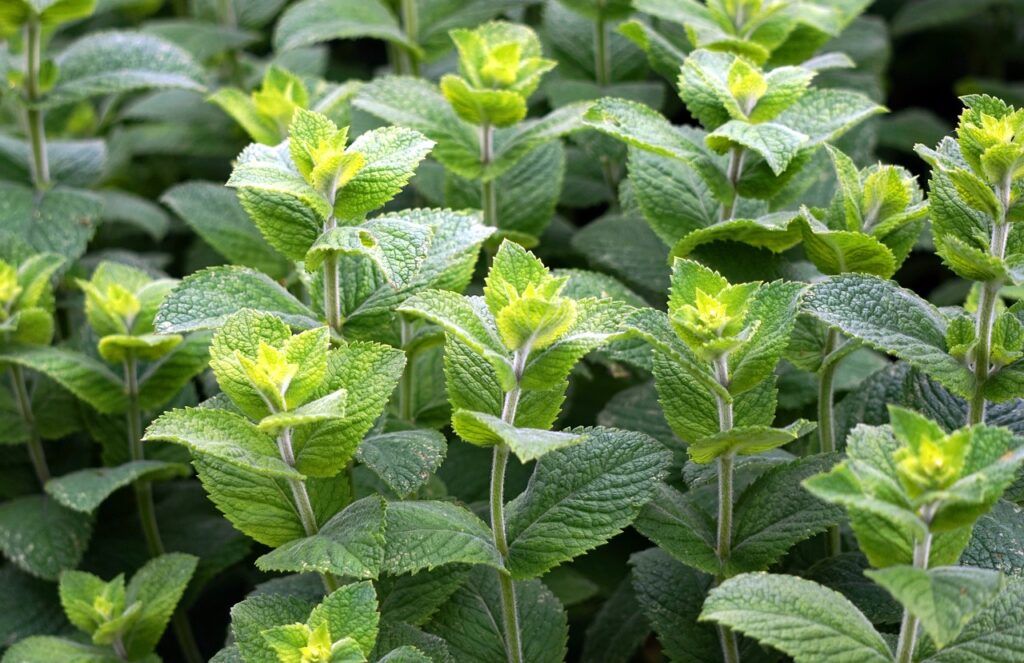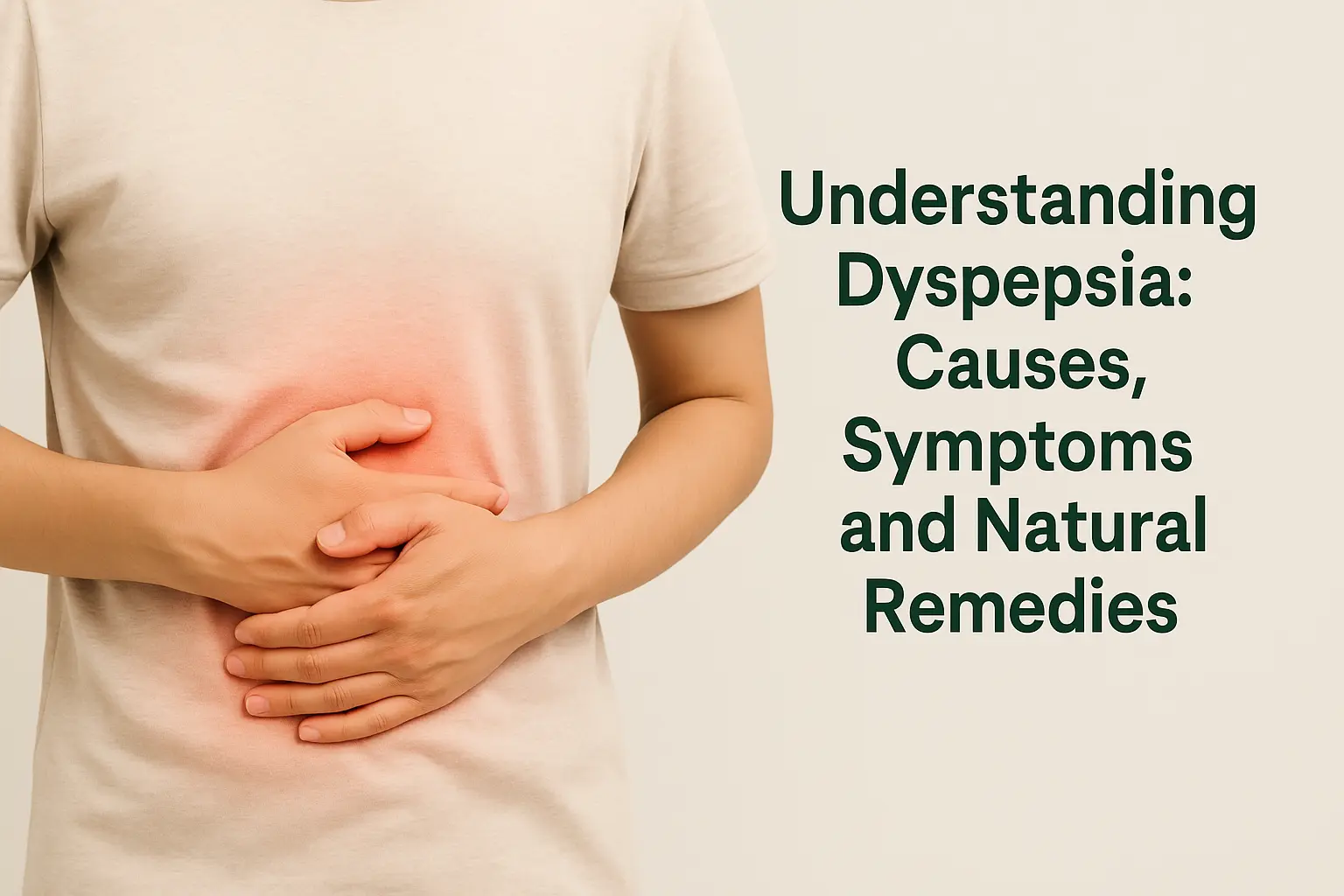Dyspepsia, commonly known as indigestion, is a prevalent gastrointestinal condition that affects millions of people worldwide. This comprehensive guide explores the condition’s nature, symptoms, and evidence-based herbal remedies that can help manage its symptoms effectively.
Table of Contents
What is Dyspepsia?
Dyspepsia is a term used to describe a complex of symptoms affecting the upper gastrointestinal tract, including the stomach and first part of the small intestine. According to the American College of Gastroenterology, it affects approximately 25% of the population in Western countries.
Common symptoms include:
- Upper abdominal pain or discomfort
- Bloating
- Early satiety (feeling full quickly)
- Nausea
- Burning sensation in the stomach
- Belching
- Loss of appetite
Understanding the Causes
Research published in the World Journal of Gastroenterology identifies several factors contributing to dyspepsia:
- Helicobacter pylori infection
- Stress and anxiety
- Certain medications (especially NSAIDs)
- Dietary factors
- Gastroesophageal reflux disease (GERD)
- Gastroparesis
- Peptic ulcer disease
Evidence-Based Herbal Remedies

Ginger (Zingiber officinale)
Scientific evidence: A study published in the World Journal of Gastroenterology (2019) demonstrated ginger’s effectiveness in promoting gastric emptying and reducing dyspepsia symptoms.
Recipe:
- Fresh ginger tea:
- Peel and slice 2-3 cm of fresh ginger
- Boil in 2 cups of water for 10 minutes
- Strain and drink 2-3 times daily
- Optional: Add honey to taste

Peppermint (Mentha × piperita)
Research from the Journal of Clinical Gastroenterology shows peppermint’s effectiveness in reducing gastrointestinal spasms and pain.
Recipe:
- Peppermint tea infusion:
- Use 1-2 teaspoons of dried peppermint leaves
- Steep in 1 cup of hot water for 10 minutes
- Drink 2-3 times daily between meals

Chamomile (Matricaria chamomilla)
Studies in Molecular Medicine Reports highlight chamomile’s anti-inflammatory and antispasmodic properties.
Recipe:
- Chamomile digestive blend:
- 2 teaspoons dried chamomile flowers
- 1 teaspoon fennel seeds
- 1 cup boiling water
- Steep for 15 minutes
- Strain and drink before meals

Turmeric (Curcuma longa)
Research in the Journal of Alternative and Complementary Medicine demonstrates turmeric’s anti-inflammatory properties and its benefit for digestive health.
Recipe:
- Golden milk for digestion:
- 1 cup milk (dairy or plant-based)
- 1 teaspoon turmeric powder
- 1/4 teaspoon black pepper
- Small piece of ginger (grated)
- Heat ingredients together
- Simmer for 5 minutes
- Strain and drink before bedtime
Artichoke Leaf Extract
Clinical trials published in Phytomedicine show artichoke leaf extract’s effectiveness in reducing dyspepsia symptoms.
Recommended dosage: 320-640 mg of standardized artichoke leaf extract daily, divided into 2-3 doses.
Lifestyle Modifications and Preventive Measures
According to the Mayo Clinic, combining herbal remedies with the following lifestyle changes can enhance their effectiveness:
- Dietary modifications:
- Eat smaller, frequent meals
- Avoid trigger foods
- Reduce fatty and spicy foods
- Limit alcohol and caffeine
- Stress management:
- Practice regular meditation
- Deep breathing exercises
- Regular physical activity
- Adequate sleep
Safety Considerations
The Journal of Clinical Medicine emphasizes important safety considerations when using herbal remedies:
- Consult healthcare providers before starting any herbal treatment
- Be aware of potential interactions with medications
- Start with small doses and monitor reactions
- Discontinue use if adverse effects occur
- Choose quality-assured herbal products
When to Seek Medical Attention
The American Journal of Gastroenterology recommends seeking medical attention if:
- Symptoms persist despite herbal remedies
- Severe or persistent pain occurs
- Unexplained weight loss
- Difficulty swallowing
- Black or tarry stools
- Persistent vomiting
Conclusion
While dyspepsia can significantly impact quality of life, various evidence-based herbal remedies can help manage symptoms effectively. Combined with appropriate lifestyle modifications and proper medical supervision, these natural approaches offer safe and effective alternatives for many sufferers.
References
- World Journal of Gastroenterology. (2019). “Current understanding of dyspepsia”
- Journal of Clinical Gastroenterology. (2018). “Herbal medicines for gastrointestinal disorders”
- Molecular Medicine Reports. (2020). “Therapeutic effects of chamomile”
- Journal of Alternative and Complementary Medicine. (2019). “Turmeric in gastrointestinal disorders”
- Phytomedicine. (2018). “Artichoke leaf extract in the treatment of functional dyspepsia”
- Mayo Clinic. (2021). “Dyspepsia: Diagnosis and treatment”
- American Journal of Gastroenterology. (2020). “Guidelines for management of dyspepsia”
Note: Always consult with healthcare professionals before starting any new treatment regimen, including herbal remedies.

